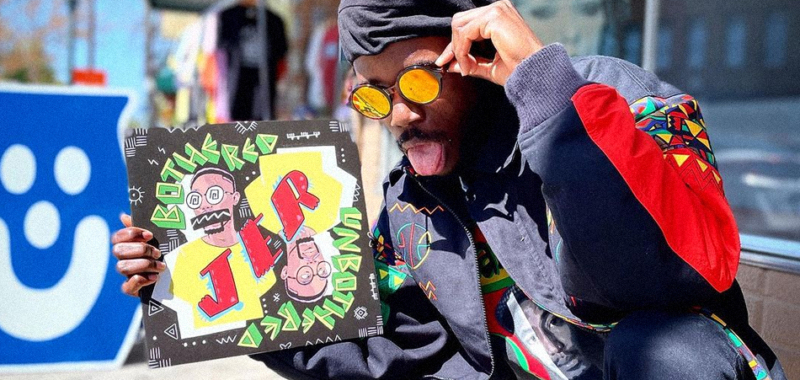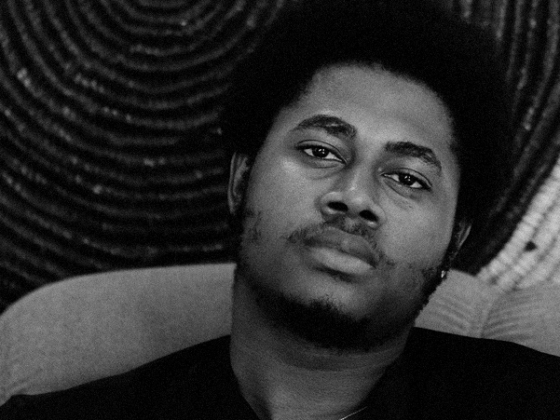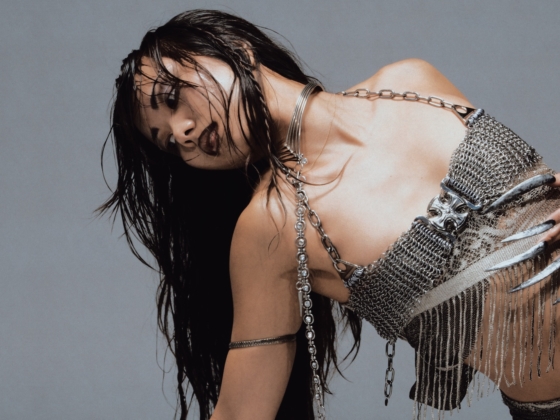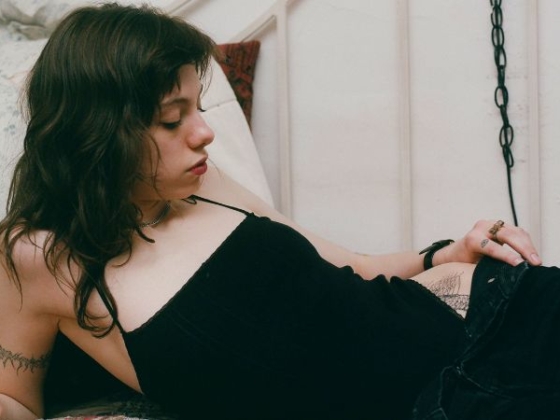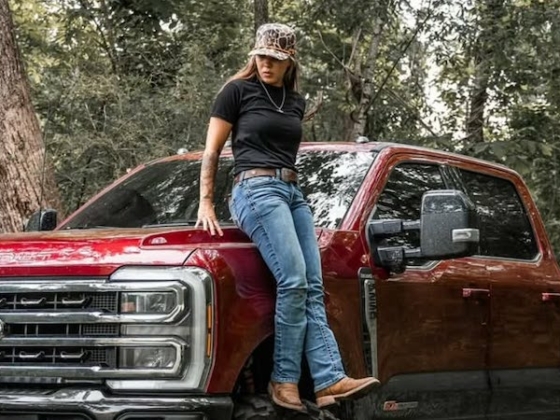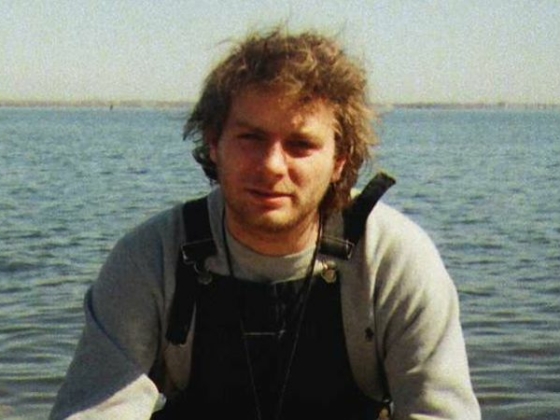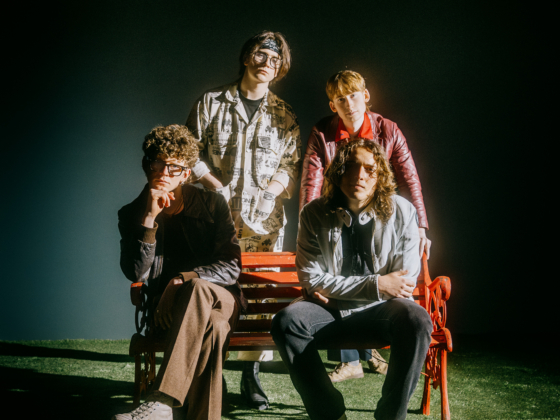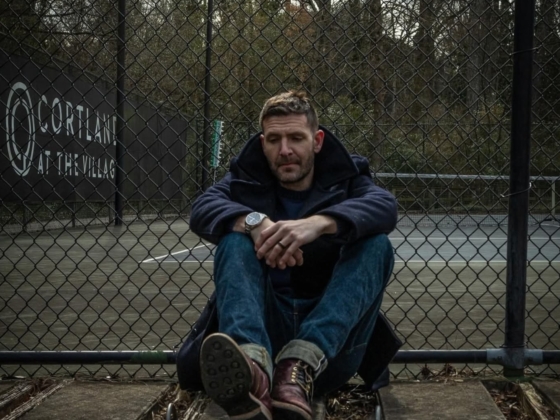I sat down with one of the most prodigious names in the current U.S ska scene, JER, aka Skatune Network to discuss the popularity of ska in Mexico, the radical act of being unbothered and being shadow-banned on TikTok.
JER is a singer, multi-instrumentalist, and composer based in Gainesville, Florida. You’ve probably seen them on your social media feed doing a ska cover of the Teen Titans theme song or explaining the social impact of ska music in Jamaica in the 60’s under the moniker Skatune Network.
From playing SKA music in their high school band to accompanying multiple groups in the Florida scene, most notably We Are The Union, JER is one of the most recognizable names in the current SKA music scene, utilizing social media platforms to bring awareness to the vibrant music scene as well as socio-political issues.
Their official debut project BOTHERED/ UNBOTHERED is a protest against a world currently on fire. One that’s always burned away at marginalized communities, but with a hopeful future in sight. BOTHERED/ UNBOTHERED is a fun and enigmatic approach to ska any fan can dive into and enjoy, new or familiar with the genre. I spoke to the Gainesville artist on what makes them unbothered.
The album is politically charged to the max, with 2020’s political climate being the catalyst for the project from early demos to its final conception.
“I had written ‘BOTHERED’ before I even named the record. And the song was written as I wrote it in response to the shit hole that was my Facebook in 2020 and people trying to argue and justify a cop killing someone and finding ways to jerry pick the situation. And I was just like ‘how are we living in a world where it’s not clear that this is just wrong like how do people even think that”, they stated.
“Which I know it’s a lot of brainwashing, propaganda and stuff like that, but you see what happens and you see the situation…there’s really no way to justify this and people were WELL ACTUALLY and you cant well actually that. There’s nothing to ‘well actually’ about that and if it is then you probably need help”, they affirmed.
There’s a firm split between bothered and unbothered, as demonstrated in the cover art and placement of the tracks with the former being the album opener and the latter being the closer.
“So that’s where I was when I was writing that and then as I got halfway through the record a lot of the songs about being bothered by things were there and then I watched a video my ex showed me. A video titled ‘how to be unbothered’ and the video was more like they're a content creator and when things get political why bother getting upset by their thinking”.
“So you can get bothered and mad in general about things, but then what is getting mad gonna do to make the material conditions better for yourself, that person or the world and that’s really where the record was. I was writing a lot songs about being upset, angry, and bothered but like I don’t believe in making a question without providing an answer or solution, and that’s not to say my record is the solution to colonization, but my hope was if someone could listen to that record they could relate to that record”, they assured me.
“The core theme is being bothered and I want the solution to be to find a way to find peace with yourself and if you’re going to exert that energy..put that energy into something that matters. Like if someone on the internet makes me mad, I text my friends and let them know that I love them. Put that energy into something that matters”, they stated.
When every popular song trends on Tik Tok, they tend to fill Grammy nominations and make or break careers. JER has seen the ugly side of that social media landscape, a side where it’s easy to be shadowbanned simply for being a Black creator.
“I got on TikTok a month after they changed the name from Musicaly. I’ve been on TikTok for a long time. For the longest time, I was one of the only musicians and I knew other musicians on TikTok, but as far as friends of mine, bands, other artists, I didn’t know anyone on TikTok for over a year. It wasn’t until the pandemic started where everyone really got on it. And Back then it was like the wild wild west. There was no suppressive algorithm and you could go viral it was very easy to do that, but now so many algorithms are in place and TikTok can be like ‘let me make sure this doesn’t pop off as much as it should”, they said.
“Then they started implementing a lot of things you see on Instagram and Facebook and then they introduced the pay to promote your stuff and that’s when I saw the nail in the coffin or so I thought”.
“Then I got really frustrated because in 2020, they were really starting to bury Black voices and in 2021 It started getting even worse with Black artists getting their audios removed”.
“I remember making something in Logic, screen recording that and uploading to be like ‘hey I wrote this song’, and then It got taken down due to copyright and I was like ‘I didn’t copyright this in the last 5 minutes TikTok”, JER shared with me.
“I’ve been talking about political stuff there and to see the Apolitical creators do the same thing I do without getting shadowbanned, I don’t think it’s an algorithmic mistake as people are claiming it to be”.
“It wasn’t until early 2022 when I got back on to mingle with the community of friends I made on TikTok and so I started posting again and my posts don’t do anywhere near they used to, despite me doing all the algorithm things correctly and understanding how it works but it’s still cool to be on the app”, they said.
“See if TikTok wasn’t suppressing my reach, the material condition of my life would actually change…It’s not their fault, it’s the fault of the algorithm and it’s like I can completely live off my music if the combined 700,000 people across my platforms can see that I exist”.
“When we put out 'Decolonize Yr Mind' we got shadowbanned…I would have my friend go to my page and check for the video and it just wouldn’t be there. Even if they refreshed it, I would have to d.m the link for them to see it”, they assured.
Unbeknownst to me and countless music fans, ska has been going strong for decades now. I shared with JER that this was the first full-length ska record I’ve listened to since Streetlight Manifesto. They laughed and shared with me the surprising popularity of ska in Mexico and how the categorization of its movements is inaccurate and unnecessary.
“I just personally hate the wave categorization”, they stated.
“The idea of it is there were three big moments where ska was really popular. There was the Jamaican ska. There was the second wave with the two-toned stuff and then when ska became popular in America. And to me, it doesn’t make sense cause there’s so much ska that’s happened everywhere else and it implies this idea that ska just wasn’t successful or anything outside of that when people would argue very much the opposite”, they said.
“Specifically the two-toned era was the unmatched peak, and the third wave didn’t come close to what it encountered. Even the first wave wasn’t as huge. It was big in Jamaica, but it didn’t reach outside the island unless it was underground. In the ’60s in the first wave there were ska bands in Mexico, Japan, all over the world doing that same sound. So obviously it traveled, but was mainly underground”.
“And then in the second wave, it exploded in a global wave and inspired all over the world in China, Palestine, and Russia and everywhere across the world”, they affirmed.
“There were huge ska scenes! Even now, for ten years, Inspector from Mexico, they’re a ska band and they get as many streams as Paramore and for a band in Mexico, a country in population that’s smaller than us with numbers the same as Paramore speaks volumes to how popular it is, but how that doesn’t fit in the wave categorization. Like why isn’t Mexico considered a wave at that point?”, they said.
“The wave categorization is inherently flawed and views everything from the perspective of someone that comes from a place of privilege in the United States. Cause in the Latin ska scene in L.A, there’s so much happening there but people don’t see that as a wave. When you look at the scene in Orange County, that’s bigger than the third wave of ska, but people don’t see it that way from also a capitalist viewpoint”, they made clear.
“It also implies that ska dies and has to come back, but what’s happening in ska has been happening and people now are choosing to pay attention..I just care about community. Whether it’s underground or takes over the world, as long as there’s community support to do what we do, that’s all I care about”.
“We’re looking at the bigger picture and we’re going to get there”
On the outside, JER is one of the biggest names in the current wave of ska popularity, but at their core, JER is a creator that wants fans to be understood and to be seen. JER is beyond an artist. They’re an abolitionist, a marginalized creator, a protestor, a human being that yearns to see the end of the world and something better beyond it.
In their words: “Being unbothered is cool, it’s tight and to anyone who’s reading this or listened to the record, feeling inspired, know that the work of being unbothered, the word of decolonizing this world, the work of all of the themes on this record is not a linear path and it’s fine to stray away from that, but we’re looking at the bigger picture and we’re going to get there”.

